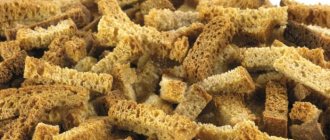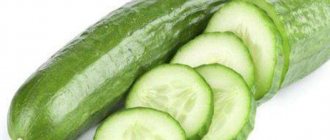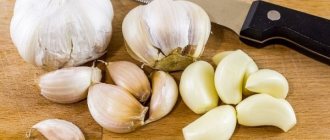Diet for gastritis is the main part of complex treatment.
Without dietary restrictions, it is difficult to achieve results while taking even the most expensive and effective medications. It’s not easy to figure out right away which foods can be consumed and which should be limited: of course, it’s clear with alcohol – marinades – smoked meats, but what about food addictions? For example, is it possible to eat seeds for gastritis?
At first glance, the habit is harmless; there is even an opinion that some varieties of the product have medicinal properties. We propose to examine the issue in detail.
What seeds can you eat if you have gastritis?
During the remission stage of gastritis, you can expand your diet by adding safe foods. Doctors continue to debate about the safety of seeds, so this product should not be rushed into the menu. If you really want to pop some seeds, you need to limit yourself to a few seeds, and it is recommended to eat them after the main meal, but under no circumstances on an empty stomach. This will minimize possible harm to the product.
Experts speak of 50 grams of seeds as a relatively safe portion of the product for patients with gastritis. However, it is worth starting with half of this amount and observing the body’s reaction.
Tip: To reduce the likelihood of stomach harm, the seeds should be chewed thoroughly before swallowing. This will facilitate the process of their digestion in the stomach.
To get the benefits of sunflower seeds, you can use a simple recipe:
- 100 grams of seeds are ground in a coffee grinder to flour;
- add 2 tablespoons of liquid honey to it;
- mix the components thoroughly;
- transfer the resulting mixture into a glass jar;
- You can eat no more than 2 teaspoons of treats daily.
In addition to sunflower seeds, pumpkin and flax seeds are often eaten. It is difficult to say how safe these products are for gastritis. On the one hand, pumpkin seeds contain useful substances that the body needs to fight gastritis to fight the disease. On the other hand, they are also a solid product that can damage the gastric mucosa.
Is it possible to eat during an exacerbation?
During the acute phase of the disease, it is necessary to follow a strict diet, in which only gentle foods are consumed. Any food that is prohibited for gastritis can negatively affect the gastric mucosa and cause serious complications.
Therefore, the use of seeds during exacerbation of inflammation is prohibited, since this can irritate the gastric walls and increase the level of hydrochloric acid production. When consumed in excess, pumpkin and sunflower seeds, as we have already said, cause flatulence and bloating.
Beneficial properties of sunflower seeds
The most common seeds in Russian culture, both city dwellers and villagers love to feast on them. Sunflower seeds are a storehouse of nutrients. They include the following important elements.
Vitamin E. 70 g of product contains the daily requirement required by an adult.
- Tannins;
- B vitamins;
- Zinc;
- Phosphorus;
- Protein;
- Cellulose;
- Iron;
- Fitin;
- Magnesium;
- Vitamin PP;
- Copper;
- Potassium;
- Fats;
- Selenium;
- Carotenoids.
The seeds contain elements that improve hormone synthesis.
In German folk medicine they are prescribed for bronchitis, urticaria and malaria.
But there is also a negative side:
- High calorie content: 100 g of product constitutes a quarter of the daily requirement; large consumption leads to weight gain.
- Harm tooth enamel. If you bite seeds with your teeth, this can lead to caries; you can also damage your gums, which can cause stomatitis.
- Roasted seeds do not have a high vitamin content, since they lose their properties when fried.
- The product, when stored for a long time, can accumulate toxic substances, such as cadmium or nickel, which is harmful to the body.
- Often store-bought seeds contain salt; its excess is deposited in the skeletal system and causes an increase in blood pressure.
- They can be addictive. A person may not control the amount eaten, which causes nausea and heartburn due to excess fat.
It is important to note that it is not recommended to eat fried seeds; it is better to dry them in the oven without adding oil and spices. You can also eat them raw - this is the ideal option for consumption.
Doctors and sunflower seeds - pros and cons
All the foods we eat have both beneficial substances and harmful qualities. So, doctors are in favor of taking seeds because they contain a lot of useful substances, vitamins B, E, and A. In addition, it contains amino acids that must be present in our diet. The seeds help improve heart function and add radiance to the skin and hair.
At the same time, seeds are a fairly fatty product. It can cause you not only gastritis, but also problems with digestion, kidneys, liver, and lead to obesity. In addition, dentists are also against seeds. Sunflower seeds spoil teeth and destroy the integrity of enamel. But if you follow the measure and eat no more than fifty grams of them per day, then there will be no harm to health, and the body will receive the dose of nutrients it needs.
Pumpkin seeds for gastritis
Pumpkin seeds can help improve digestion due to their high fiber content, normalize bowel movements, relieve stomach cramps and even nausea. But are they acceptable for gastritis? Doctors say that you should refrain from eating pumpkin seeds for peptic ulcers and acute gastritis. They can cause harm: Once in the stomach, raw seeds damage the mucous membrane.
Pumpkin seeds increase the acid content in the stomach, so they are contraindicated for gastritis with high acidity. It is especially not recommended to eat fried seeds with added seasonings: they will cause even more harm to a sore stomach than raw ones. If you are going to introduce seeds into your diet, then the amount should not exceed 50 g per day.
Outside of an exacerbation, you should also not abuse this product; it is recommended to wait for a stable remission. When used correctly, while the disease is weakening, pumpkin seeds will relieve constipation and improve digestion processes. But in any case, it is necessary, for the sake of caution, to consult with your doctor. During the period of exacerbation of gastritis and ulcers, the use of pumpkin seeds is strictly prohibited.
The benefits of pumpkin seeds
Pumpkin seeds are eaten in Eastern Europe and Mexico. They are eaten raw, boiled, fried, and added to various dishes. Processing at high temperatures significantly reduces the content of vitamins in them, but does not affect the amount of microelements. They are a well-known remedy for worms and prostatitis.
They contain many useful substances.
- Protein;
- Vitamin K;
- Phosphorus;
- Magnesium;
- Copper;
- Iron;
- Zinc;
- Organic acids;
- Vitamins B1 and C;
- Amino acids;
- Carotene (provitamin A);
- Resinous substances;
- Essential oil.
Vitamin PP is necessary for protein metabolism and is involved in processes at the cellular level and hormonal synthesis. Pumpkin and flax seeds are beneficial after heat treatment. Medicinal tea is made from them. These remedies help eliminate the inflammatory process in gastrointestinal diseases, and a decoction of flaxseeds can coat the gastric mucosa, preventing irritation. A positive property of pumpkin and sunflower seeds is their calming and distracting effect.
For gastritis with low acidity
People with low acidity are luckier when it comes to eating seeds for gastritis. An inflamed stomach with this type of disease produces a reduced amount of acid. Due to the fact that the seeds provoke its release, this delicacy is allowed, but only in limited quantities and with strict consultation with a doctor. After all, the seeds cause irritation to the walls of the stomach, which are already replenished.
Fresh pumpkin seeds have a laxative effect, it is worth paying attention to this fact. If the gastrointestinal tract does not function properly, substances that facilitate the digestion of food are produced in insufficient quantities. People suffering from gastritis with low acidity experience constipation.
In this case, pumpkin seeds will have a positive effect. The effect of normalizing the functioning of the gastrointestinal tract is achieved due to the unique vitamin K contained in pumpkin seeds.
Is it possible to eat seeds during an exacerbation of gastritis?
During an exacerbation of gastritis, the gastric mucosa is inflamed, and any food, even neutral food, causes irritation. During this period, you can only eat porridge with water, pureed meat, steamed cutlets, and when the peak of the exacerbation subsides, boiled or steamed vegetables.
To the question whether it is possible to gnaw seeds during gastritis during an exacerbation, the answer is clearly negative. The seeds will irritate the stomach walls even more; the fats they contain will complicate the digestion of food. This will lead to even greater aggravation and severe pain in the abdomen and indigestion. Seeds for gastritis with high acidity will contribute to the production of hydrochloric acid, which is already in excess at the time of exacerbation, increasing the symptoms of the disease.
It’s no secret that once you try a bunch of seeds, it’s difficult to stop, you can “eat the whole bucket.” It is this factor that makes them the most dangerous product for acute gastritis.
Biologists from Stanford University have proven that people can be addicted to seeds and chips. Tests were carried out on laboratory mice and found that the brains of animals that ate seeds and chips were activated in those areas that are responsible for reflexes and addiction.
In addition to mechanical damage to the mucous membrane, you need to remember that seeds and nuts are quite fatty foods. Their consumption in large quantities can cause hypersecretion of the duodenum and stomach. And this will provoke the appearance of pain, increased acidity, bloating, flatulence, etc. For the same reason, seeds are strictly contraindicated for women in a position with symptoms of gastritis.
Sunflower seeds
Treatment of gastritis (acute or aggravated), in addition to medication, also involves following a diet.
It is necessary to avoid fried, smoked, salted, fatty, canned and hard foods.
Sunflower seeds are, firstly, solid food, and secondly, they are very fatty.
Approximately 80% of one seed consists of fat.
It was also found that the seeds on the shelves of our market contain such an element of the periodic table as cadmium.
This is a toxic metal that can cause irreversible processes in the body, including the development of cancer.
It gets into the seeds through soil and water. With a daily consumption of this metal in the amount of 0.6 milligrams per day, it is life-threatening. Per 100 grams of seeds there is about 0.02 milligrams of cadmium.
Another “no” in favor of avoiding seeds during gastritis: when consuming sunflower seeds, the stomach produces gastric juice, which has a detrimental effect on the mucous membrane.
In case anyone has forgotten their chemistry lessons, the stomach produces hydrochloric acid. And with gastritis, the digestion process and the production of gastric juice are already disrupted. And seeds make the situation even worse.
Among other things, roasted seeds taste better than raw ones and crack easier. But you can’t eat fried food if you have gastritis.
Sunflower seeds are not allowed for gastritis!
How to eat seeds correctly during remission
If during an exacerbation, doctors categorically prohibit eating seeds for gastritis, then the answer to this question is not so clear during remission (improvement of the condition). Whether it is possible to eat pumpkin seeds with gastritis and whether it is possible to eat sunflower seeds with gastritis is decided by the attending physician.
There are 3 little tricks to reduce the irritating effect on the walls of the stomach.
- Crush the seeds and sprinkle them on porridge, yogurt or cottage cheese.
- Eat the seeds after liquid oatmeal or oatmeal jelly. The porridge coats the walls of the stomach, reducing the irritating effect of hard seeds.
- Never eat seeds on an empty stomach.
It is recommended to consume sunflower seeds for gastritis after oatmeal jelly. Thanks to its viscous structure, it perfectly envelops and minimizes irritation.
In order for the product to bring maximum benefit, it is important to use it correctly. The seeds are always eaten raw, the daily intake does not exceed 50 grams. Regularity of use: once a week.
So, patients with gastritis can eat seeds, but subject to a number of conditions, namely:
- you can eat seeds only if gastritis has gone into remission;
- They need to be consumed in small quantities, the maximum daily portion is 50 grams;
- The seeds must be chewed very thoroughly.
The benefits of pumpkin seeds
Are pumpkin seeds allowed for gastritis? After all, pumpkin is one of the healthiest foods, but are its seeds healthy? Pumpkin seeds contain the important vitamin K, as well as folic acid, fiber and niacin. The body of every person needs these substances, however, if you have an illness with high acidity, consuming pumpkin seeds is strictly contraindicated.
Pumpkin seeds are allowed in small quantities if gastritis is in remission. They are allowed to be introduced into the diet of people with low acid levels due to gastritis in small quantities up to 50 grams. Exceeding the daily dose over 50 g may lead to an exacerbation of the disease. It is strictly prohibited to increase the number of seeds eaten per day, even if there are no signs of exacerbation of the disease. A moderate amount of pumpkin seeds helps normalize stools and get rid of constant constipation. Pumpkin seeds also help in the following situations:
- contribute to increasing the protective function of the body;
- reduce the level of excess cholesterol;
- take an active part in the treatment of osteoporosis.
Removing toxins and harmful substances from the body allows you to normalize the functioning of the intestines.
It is important to know! Fried foods should be completely excluded from the diet, even if the disease is in remission.
Sunflower seeds
Sunflower seeds are very popular because they have a pleasant taste. But can people with gastritis eat sunflower seeds? The product is not included in the list of foods that are safe for patients because it is very fatty, in addition, it can mechanically damage the mucous membrane of the digestive organs.
Video on the topic:
Mostly, people consume roasted sunflower seeds as roasting significantly improves the taste. However, heating greatly reduces the nutritional value as many vitamins are destroyed. To prevent sunflower seeds from causing harm to a patient with gastritis, it is recommended to follow the following recommendations:
- It is not advisable to purchase peeled kernels, since this product does not have a very long shelf life. The fats contained in them oxidize under the influence of air, turning into harmful substances;
- Seeds purchased at the market must be washed well, then dried and fried. This treatment will protect against various infections, since the peel may contain various pathogenic microbes;
- do not buy products with flavoring additives in stores, such additives will not benefit healthy people;
- You can’t eat seeds on an empty stomach, it’s better to eat them after a meal;
- you cannot exceed the daily norm, the maximum amount is 50 grams.
Features of correct use
It is strictly contraindicated to consume fried seeds for gastritis, but you can give preference to pumpkin seeds, only in fresh form. These types of seeds not only have no negative effects, but also completely eliminate the exacerbation of gastritis.
To prevent exacerbations of the disease, you should strictly control the dosage of seeds. If a patient with gastritis decides to treat himself to sunflower or pumpkin seeds, then he should initially measure the daily intake. You should not eat the seeds on an empty stomach, but only after or during a main meal. Thus, it is possible to completely eliminate the increase in acid in the gastric juice.
Despite the fact that seeds are not recommended for use in case of gastrointestinal diseases, many still allow themselves to be pampered for the sole purpose of relieving stress and normalizing their psychological state.
Pumpkin
The benefits of pumpkin seeds have long been proven. They help get rid of parasites, restore liver function, and have a beneficial effect on the functioning of the central nervous system. In addition, pumpkin seeds can improve digestion, relieve stomach cramps and even relieve constant nausea.
However, with gastritis with high acidity, this product can be harmful, since it has the property of increasing the production of gastric juice. But pumpkin seeds for gastritis with a low level of acidity will be useful, but only if the following conditions are met:
- It’s better to eat raw pumpkin seeds, they are healthier than fried ones;
- It is not recommended to eat more than 50-60 grams per day and, preferably, not to eat this product at once; it is better to distribute the daily intake into several servings.
If you exceed the daily amount and eat a lot of pumpkin seeds, you may experience a feeling of heaviness in the stomach, as well as indigestion.
To get the benefits of sunflower seeds, you can use a simple recipe:
- 100 grams of seeds are ground in a coffee grinder to flour;
- add 2 tablespoons of liquid honey to it;
- mix the components thoroughly;
- transfer the resulting mixture into a glass jar;
- You can eat no more than 2 teaspoons of treats daily.
Pumpkin seeds can help improve digestion due to their high fiber content, normalize bowel movements, relieve stomach cramps and even nausea. But are they acceptable for gastritis? Doctors say that you should refrain from eating pumpkin seeds for peptic ulcers and acute gastritis.
They can cause harm:
- Once in the stomach, raw seeds damage the mucous membrane.
- Pumpkin seeds increase the acid content in the stomach, so they are contraindicated for gastritis with high acidity.
- It is especially not recommended to eat fried seeds with added seasonings: they will cause even more harm to a sore stomach than raw ones.
If you are going to introduce seeds into your diet, then the amount should not exceed 50 g per day. Outside of an exacerbation, you should also not abuse this product; it is recommended to wait for a stable remission. When used correctly, while the disease is weakening, pumpkin seeds will relieve constipation and improve digestion processes. But in any case, it is necessary, for the sake of caution, to consult with your doctor.
Pumpkin seeds
They are not as popular as sunflower ones, but they also have their fans. And for good reason. After all, this is a real storehouse of vitamins and other useful substances .
Pumpkin seeds are also beneficial for the functioning of the digestive tract. It contains a lot of fiber, which helps relieve constipation and excess gas. Therefore, doctors in some cases allow patients to eat a small handful to normalize stool.
Is it possible to chew pumpkin seeds if you have gastritis? Unfortunately, not either.
In case of inflammation of the gastric mucosa, especially with a peptic ulcer in the acute stage, pumpkin seeds are strictly contraindicated . Although they are less fatty than sunflower ones, they also cause an increase in acidity.
So, it turns out that pumpkin or sunflower seeds are not the best friends of a sick stomach. But there are seeds that can help and not harm gastritis, we will talk about them below.
Zucchini
The composition and properties of pumpkin and squash seeds are similar in many ways, but the latter are less in demand. They improve liver function and enhance immunity. Santonin is a substance that makes zucchini seeds an excellent anthelmintic.
If gastritis is caused by the presence of helminths in the body, then you need to take a decoction prepared from a handful of seeds boiled in a glass of water for at least 20 minutes. You need to drink half a glass 2 times a day until the parasites completely disappear.
Medicinal plant seeds
Unlike sunflower and pumpkin seeds, the seeds of medicinal plants are used in folk medicine to relieve symptoms and treat gastritis. Therapists and gastroenterologists prescribe them in addition to traditional medications. The seeds of medicinal plants are not chewed as a delicacy; infusions and decoctions are prepared from them.
Large, medium and lanceolate plantain seeds, like flax seeds, have long been used in folk medicine for gastritis. The seeds contain up to 44% mucilage, plantose carbohydrates, saponins, oleanolic acid, and fatty oil.
They have analgesic, anti-inflammatory, antiseptic properties, improve the secretory activity of the stomach. An infusion of seeds is used as a pain reliever for gastritis. The seeds contain a lot of mucus, coating the walls of the stomach.
Flaxseeds
Flax seeds deserve special attention. This product and its oil are often used to treat diseases of the digestive system. They contain a large amount of fats, vitamins and organic acids, which are very useful for inflammation of the mucous membrane. When crushed, they present an oily, viscous substance that envelops the stomach and protects it from hydrochloric acid and mechanical damage from pieces of food.
Flax seeds are allowed to be consumed raw (up to 100 g) for gastritis of any kind; you can make decoctions and infusions from them. Preparing a natural medicine is very simple: pour a tablespoon of seeds with half a liter of boiling water, wrap it in a warm blanket and leave overnight. Drink 50–100 ml of infusion before each meal. It is allowed to use flaxseeds for stomach ulcers, as they will protect erosion from acid and accelerate tissue healing.
Flax seeds can be eaten for gastritis with any acidity. They are tasteless and odorless, so they can be added to food, and not just used as medicine.
These seeds have no less beneficial properties than pumpkin or sunflower seeds; they contain a number of essential elements.
- Enzymes;
- Vitamin A;
- Fatty acids, which include glycerides of oleic, stearic, linoleic and palmitic acids;
- Organic acids;
- Carbohydrates;
- Protein substances;
- Slime.
The seeds are brewed with hot water. Thick mucus is formed, which has an enveloping effect, improving the condition of the mucous membrane, which helps relieve pain during gastritis. Linamarin glucoside, which is part of the seeds, improves intestinal motility and secretory activity.
Method of use during exacerbation. Seeds (2 teaspoons) are poured into 1.5 cups of boiling water and boiled for 10 minutes. Leave for 15 minutes, then filter and drink 1/3-1/2 cup before meals.
Is it possible to eat seeds for gastritis: benefits and negative effects
It is important to know! Bad breath is often caused by parasites! To check if you have parasites, add 1 spoon to a glass of water... Read more
Gastritis is characterized by inflammation of the lining of the stomach, mainly of a chronic nature. During illness, it is important to follow a special diet that can reduce irritation to the gastric mucosa, as well as reduce pain and inflammation.
Is it possible to eat seeds for gastritis? Clinicians prohibit plant seeds for gastritis due to the risk of exacerbation of the pathological process. Against the backdrop of a love for seeds, increased pain, nausea and heartburn are noted. This is due to two main factors:
- seeds are solid food that can damage erosive lesions;
- seed oil irritates mucous membranes.
When the first symptoms of gastritis are eliminated, pumpkin, sunflower or flax seeds can be eaten at the stage of remission of the pathological process.
Features of the effect on mucous membranes
Already crushed products enter the stomach cavity, which are broken down by various synthesized enzymes.
The gastric mucosa is regularly stressed, injured, and reflects the effects of many internal and external negative factors.
Heavy food is more difficult to digest, stagnates in the stomach cavity, and therefore interacts with hydrochloric acid for a long time. Seed oil is a complex food component, and therefore also takes a long time to be digested by the stomach.
Long-term exposure to hydrochloric acid on the mucous membrane only aggravates the manifestation of gastritis, irritates the mucous membranes and provokes the appearance of erosive foci. This is why you should not eat solid foods, including seeds and nuts.
Seeds for acute and chronic gastritis
So, is it possible to eat seeds if you have gastritis? In acute cases, you should refrain from any food that could provoke an increase in acidity levels, excessive irritation of the mucous membranes of the stomach, and the formation of erosive foci.
In the acute stage of gastritis, therapeutic fasting is recommended for 1-3 days, combined with plenty of fluids and the use of necessary medications. If you follow all the doctor’s recommendations, you can significantly alleviate the patient’s condition quickly. During the period of exacerbation, any seeds and nuts are prohibited, even in small quantities.
Chronication of gastritis usually occurs immediately after the first episode of occurrence. If the mucous membranes are damaged, long-term recovery is expected, and therefore special nutritional tactics should be developed. During the period of remission, you are allowed to eat any seeds, but in limited quantities. To ensure a healthy stomach, just 50 grams per day or 100 mg 3 times a week is enough.
Benefits and negative effects
Sunflower, flax and pumpkin seeds contain many healthy vitamins, vegetable fats, microelements necessary for the normal maintenance of electrolyte balance in the body (calcium, zinc, magnesium, phosphorus, selenium, vitamin D, manganese and others). Thanks to beneficial substances, the following beneficial processes occur in the body:
- skin aging slows down;
- the mucous epithelium of the stomach is restored;
- the risks of coronary heart disease are reduced;
- brain resources are activated;
- the risk of caries and brittle bones due to the absorption of calcium and phosphorus is prevented.
100 g of seeds contain a daily dose of a whole vitamin complex, which helps the body recover more quickly from any disease and strengthen local and general immunity. Despite the benefits, there is also some harm:
- high calorie content;
- damage to tooth enamel (when teeth crack);
- dental diseases of the pharynx mucosa;
- accumulation of nickel and cadmium - toxic elements;
- increased acidity;
- feeling of nausea, heartburn;
- increased blood pressure.
The beneficial qualities are largely determined by the dosage of the food component. Regular consumption of seeds in large quantities is unlikely to be beneficial.
sunflower seed
A common product that can be purchased at any grocery chain. There is controversy among clinicians regarding the use of sunflower seeds. On the one hand, fats increase the acidity of the stomach, which negatively affects the course of gastritis. On the other hand, the content of vitamins A, D, E strengthens the gastric mucosa and helps to recover after an exacerbation of gastritis.
Sunflower seeds go great with honey. Both products complement each other well in terms of their beneficial effects on the condition of the mucous membranes of the gastric cavity.
pumpkin seed
Pumpkin seeds are also popular. The unique taste and pleasant smell attract many who like to enjoy the product. For gastritis, pumpkin seeds are indicated only for patients with low stomach acidity. With acute gastritis with high acidity, pain and sour heartburn, love for pumpkin seeds can result in a deterioration in overall health.
In large quantities, seeds can harm any person; he does not necessarily have to have a history of any form of gastritis. However, the seed helps eliminate constipation, improve digestion, and restore stomach acidity. Other advantages include:
- removal of toxic substances;
- rapid relief of superficial gastritis;
- elimination of congestion in the intestines;
- normalization of metabolic processes.
You can learn in detail about the beneficial properties of flax seeds in this video.
Flax-seed
Flax seed has many beneficial effects. Oil is prepared from the seed, which is widely used in medicine and cosmetology.
Flaxseed oil soothes the walls of the stomach, coats the mucous membranes, and protects against the negative effects of many factors.
Flaxseed contains protein, mucous components, carotene, oils, fermented substances and a vitamin complex, and organic acids.
For any diseases of the gastrointestinal tract, 100 grams per day is enough to normalize the general condition and relieve unpleasant symptoms of active gastritis and peptic ulcers.
Tips from our readers
I got rid of parasites in just a week! I was helped by a remedy that I learned about from an interview with a parasitologist...
Read the expert's opinion >>
Despite the harm of many products for gastritis, flaxseed or oil based on it is indicated for many patients. Along with a beneficial effect on the gastric mucosa, the seeds increase immunity, speed up metabolic processes, and remove toxic components, including pathogenic microflora and parasites.
Basic recommendations
When including plant seeds in your diet, it is important to follow a number of rules so that the benefits outweigh the potential harm. There are a number of following rules for safe use in food:
- before use, it is better to dry all the seeds in the sun or in the oven (on the question of whether it is possible to roast seeds for gastritis);
- do not use seeds during the active stage of development of gastritis and peptic ulcers;
- do not eat the seeds on an empty stomach or at night (it is better to eat them in the afternoon);
- It is better to buy seeds in the skin - this way all the beneficial properties are preserved, and the kernels do not oxidize;
- It is recommended to consume the seeds in combination with vegetables, for example, adding them to salads.
At the same time, gastroenterologists should be consulted with nutritionists, who will take into account the patient’s age, risks and frequency of exacerbations, as well as body mass index as diagnostic criteria.
Source: https://GastrituNet.online/bolezni-zheludka/gastrit/lechenie-g/dieta/mozhno-li-pri-gastrite-semechki.html
The benefits and harms of sunflower seeds
Like any other product, seeds have beneficial and harmful qualities. The seeds are rich in nutrients and vitamins A, group B and E. This “folk” product is rich in amino acids, which are so necessary for our body. When consumed adequately, the seeds improve heart function and make hair and skin beautiful.
We think you paid attention to the calorie content of the product. And this is in just 100 grams of sunflower and pumpkin seeds!
Video on the topic:
That is, one small pack of seeds makes up a good quarter of the daily energy requirement. This means that by giving up sweets and starchy foods, you will not lose any weight if you eat seeds.
Second moment. Unpeeled pumpkin and sunflower seeds destroy tooth enamel and contribute to the formation of plaque and tartar. If you purchase a purified product, it no longer has the specified nutritional value, since many nutrients are oxidized and destroyed. But the fat and calories are saved.
The sunflower plant perfectly absorbs cadmium from the soil - a harmful and dangerous carcinogen, which is also present in tobacco smoke. Carcinogens are also formed when seeds are fried. The more of them, the more the product is fried. If you really can’t bear it, it’s better to dry the seeds in the oven.
By buying seeds not in a retail chain, but in spontaneous markets, you risk adding a couple more pathologies to gastritis. For example, Koch's bacillus, the causative agent of tuberculosis, is easily transmitted from seller to buyer. And she's not alone.
Moscow gastroenterologist Evgenia Shanturova, a doctor of the highest category, believes that for gastritis and other gastrointestinal pathologies, any seeds are contraindicated, because they are difficult to digest and severely irritate the mucous membrane. For healthy people, the daily intake of raw product should not exceed 100 grams, and only if you are not overweight. The fried product has no nutritional value.
Interestingly, seeds, like chips and popcorn, can cause food addiction. The opinion that peeling seeds with your hands calms the nerves is relative, because the nerves calm down because you are “feeding” your addiction.
But what about the medicinal properties of pumpkin seeds, you ask? We answer - they are an excellent anthelmintic, because... contain cucurbitin, which tapeworms cannot tolerate. If there are no helminths, then you don’t need cucurbitin.
Restrictions and contraindications
This healthy vegetable has a very delicate texture and has a gentle effect on the body, but there are still contraindications to taking it:
- Hypersensitivity or individual intolerance to pumpkin.
- In its raw form, it is not recommended for gastritis with low acidity.
- Baked sweet varieties are contraindicated for diabetes.
Important! The temperature of the product should be moderately warm before consumption: hot and cold food will cause pain and harm inflamed tissues.
Pumpkin for gastritis is a simple and tasty way to treat it. The vegetable ensures overall health of the digestive system, allowing the body to receive the necessary substances even under the strictest diet. Pumpkin is affordable and easy to prepare, and its versatile flavor suits both main dishes and desserts.











